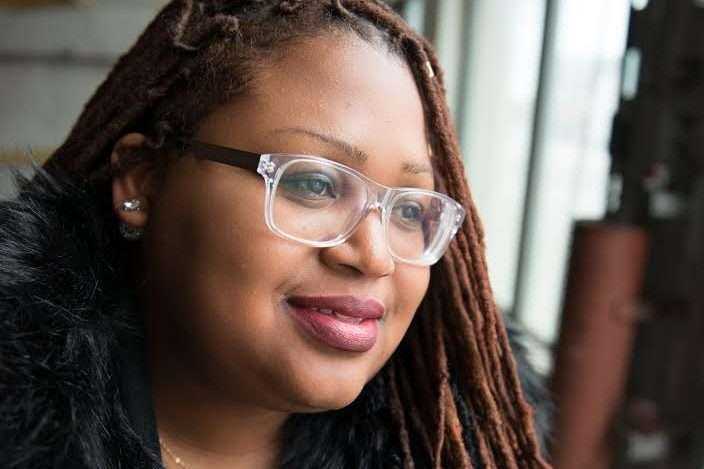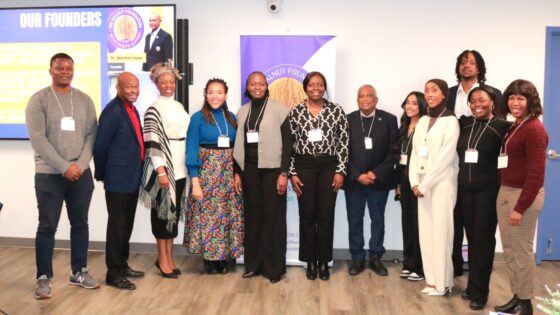on
BY SIMONE J. SMITH
“I’m a storyteller….
And like Oprah calls it…I had an ah-ha moment!
I would make ripples where I was!”
As I watched the short film simply named “Haven” my eyes welled up with tears, and I was transported back to a time in my life that has always been hard for me to talk about. Child sexual abuse is a silent social problem that continues to be ignored in the Caribbean community, and somehow, this powerful film captured the pain, and trauma of this issue. The issues of complicity, silence, denial, and family loyalty when it comes to incidents of child sexual assault are allowed to perpetuate, often without intervention, and it is why art forms like film making, and storytelling are imperative to the make-up of our communities around the world.
While a certain amount of progress has been made with on-screen talent to tackle social issues, and although entertainment companies are making efforts towards diversity and inclusion, there is still an inequity that persists and is deeply entrenched across the film and television ecosystem. It is only as of late that we have begun to see the lived experiences of African/Caribbeans, and this charge has been led by the birth of a new generation of filmmakers, pioneers who are not afraid to share the stories of our past, present, and soon to be future.
It is why when I was introduced to Kelly Fyffe-Marshall, I knew that I had to tell her extraordinary story. This young African/Caribbean screenwriter, and director has fortified her position in the filmmaking industry, and in just ten years, she has achieved what to many in her cohort may seem impossible. In just the last four years she has pushed the boundaries of the industries as a Black woman, and her accomplishments tell the tale:
- 2018 – Best Short Film; The People’s Film Festival, NYC.
- 2018 – Speaker; TEDxYouth Toronto.
- 2018 – Audience Choice Award; TriForce Film Festival @ BAFTA.
- 2019 – Speaker; Elevate Tech Festival
- 2019 – Winner; Best Director (AD Team) x Canadian Screen Awards
- 2020 – Official Selection – Short Cuts; TIFF 20.
- 2020 – Nomination – Best Canadian Short; TIFF 20.
- 2020 – Winner – Shawn Mendes Foundation Change Maker Award; TIFF 20.
- 2020 – Top Ten Canadian Short Film; TIFF 20.
- 2021 – Winner – Jay Scott Prize; Toronto Film Critics Awards
- 2021 – Nomination – Best Short Film; Sundance 2021.
- 2021 – Official Selection – Short Film; Sundance 2021.
- 2021 – Official Selection – Short Film; Aspen Shortsfest 2021.
- 2021 – Nomination – Best Live Action Short; Canadian Academy of Film & TV
I had the chance to chat with Kelly, and she shared her story, which she calls a series of fortunate events.
“My mother is Jamaican, and my father is from Barbados,” Kelly shares with me. “My father’s side moved to Jamaica, and I was born in England and lived there for 10–12 years before moving to Canada. I guess you can call me fortunate because I grew up in the industry. My grandparents were in the industry, and I remember them being on the radio. I gravitated towards theatre arts, because it allowed me to be more like myself.”
Kelly pauses to chuckle, “My teachers said I have leadership skills, and my mom always said I was bossy. Either way, I was made for this life. When I was in elementary school, middle school, and going into high school, I became more intrigued with theatre arts, television and film.
At the age of fifteen, I was fortunate to be hired on as an intern at Rogers Television. True story! One of the women who had her own show for some reason was threatened by my hunger to learn and achieve, so she challenged me to try and produce her show and bring in higher numbers. Well not only did I kill it with the show, I did so well that I took it over. She works somewhere in Australia now, but it goes to show you; what is meant for you is for you. I was always bothered by the fact that she was threatened, and instead of helping and mentoring a young achieving woman, she chose to hate on me.”
Even though Kelly was excelling in this field, her mom reminded her about the importance of education, so Kelly ended up going to Seneca College, and then York University for TV Production.
“What sucked about it was the fact that after I graduated, the province was in a recession, and by the time we had gotten out of it, things had changed so much, so everything I learned became obsolete. I started doing music videos and content, I just didn’t enjoy it. I wanted to be able to have a very successful career, which meant doing more.
I volunteered to be on bigger sets, and I was hired as an Assistant Director. It was perfect because I was in my element; I was able to tell people what to do, but I took notice of the Director. I realized that the Director was the silent boss. I realized that was where I needed to be. I used that job to study the sets, and I decided I wanted to be a Director, but there were no scripts that spoke to me, spoke to the causes I believed in. I decided to write my own stories.
I am a vessel, and messenger for the message. I wanted to use my art to share my activism. This is how Haven was born. We didn’t have any money, but we made it happen. Just being able to touch people and talk to people. It was definitely a way for me to push things out. I’ve realized that I start a lot of my movies, not with ideas, but with emotions. Something will happen and I’m like, ‘That would be interesting to write a movie around.’”
Kelly shared with me the difficulty she had navigating the film industry, and another series of fortunate events happened when she connected with Photographer Jordan Oram, and Producer Tamar Bird.
“We were all working together, and Tamar and I were PA’s on the same set eight years ago. I remember that our eyes met, and we nodded at each other. We have been friends ever since. In our communities, we’re taught the scarcity mentality and that only one [of us] can get [acclaim] at a time. It hasn’t been until the past four years that I’ve actually become friends with other Black female and non-binary directors. We were never put in the same room because we were competing against one another for work.”
The next big project that they worked on together was Black Bodies. It was the only film produced solely by Black women, and when it debuted at TIFF, the film won the festival’s inaugural Changemaker Award, and a $10,000 prize. It was one of only six Canadian films selected to be part of the United States’ largest indie film festival.
Fyffe-Marshall has voiced her frustrations around the lack of Canadian coverage of her film, Black Bodies, which premiered at the Sundance Film Festival. She shared this frustration in one of her tweets.
“We’re 1 of 6 Canadian projects in Sundance this year, out of the 118 films they selected, out of thousands that submitted — with an all-Black female production team. And there have been crickets in Canada, which is wild. This is why we [lose] so many of our artists to the US.”
It wasn’t until a tweet from trailblazing filmmaker Ava DuVernay, the first Black woman to be nominated for a Golden Globe Award for Best Director, that Fyffe-Marshall says the success of Black Bodies felt fully validated. Now, we can all watch this award-winning film on CraveTV.
Their next venture together is a set of feature films, When Morning Comes and Summer Of The Gun. The former is an immigration story about a young boy from Jamaica. The latter finds the same protagonist implicated in events during the 2005 summer in Toronto, when gun violence was at its peak.
“What makes me happy is that I will be able to create these films with the backdrop of the beautiful island of Jamaica. It will be my love letter to the island, to the people, to the captivating culture.”
Stay in the loop with exclusive news, stories, and insights—delivered straight to your inbox. No fluff, just real content that matters. Sign up today!
We, as humans are guaranteed certain things in life: stressors, taxes, bills and death are the first thoughts that pop to mind. It is not uncommon that many people find a hard time dealing with these daily life stressors, and at times will find themselves losing control over their lives. Simone Jennifer Smith’s great passion is using the gifts that have been given to her, to help educate her clients on how to live meaningful lives. The Hear to Help Team consists of powerfully motivated individuals, who like Simone, see that there is a need in this world; a need for real connection. As the founder and Director of Hear 2 Help, Simone leads a team that goes out into the community day to day, servicing families with their educational, legal and mental health needs.Her dedication shows in her Toronto Caribbean newspaper articles, and in her role as a host on the TCN TV Network.













